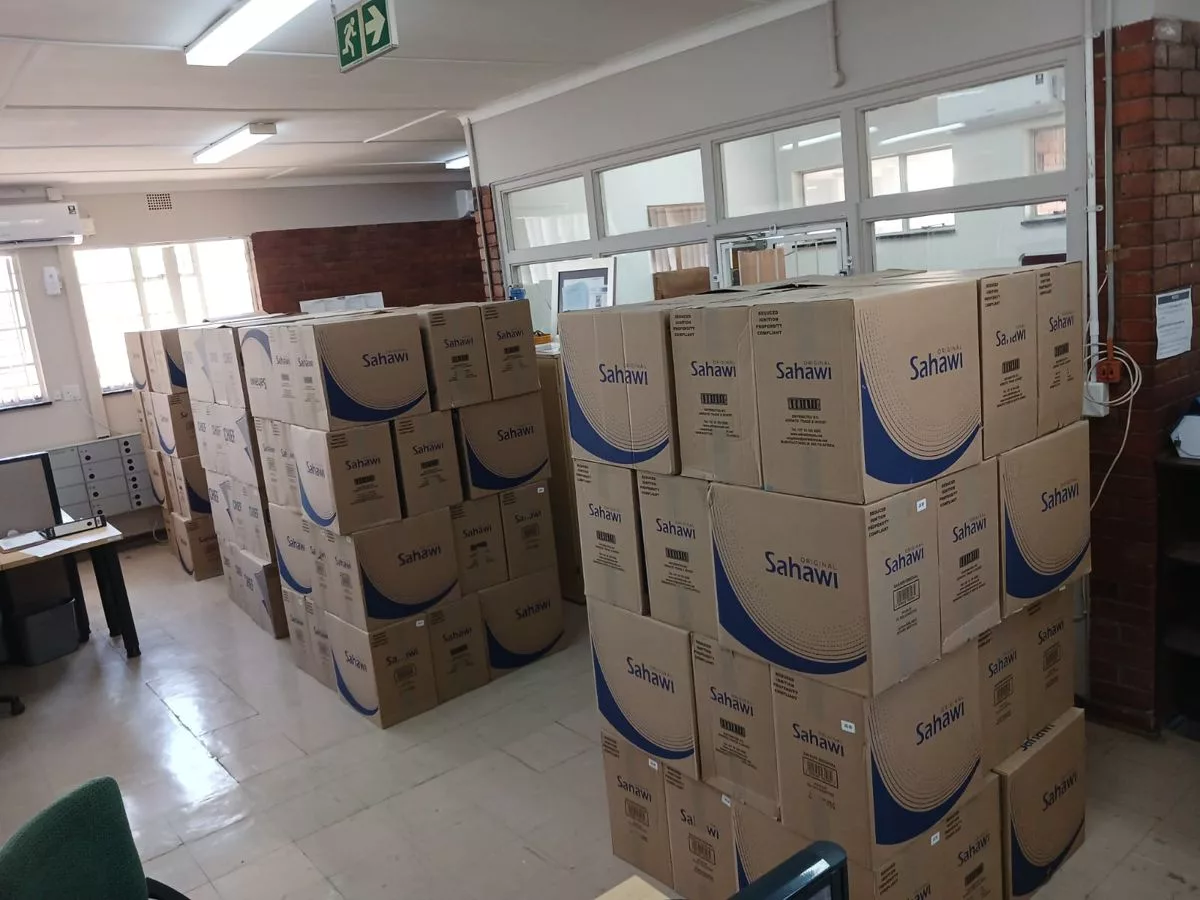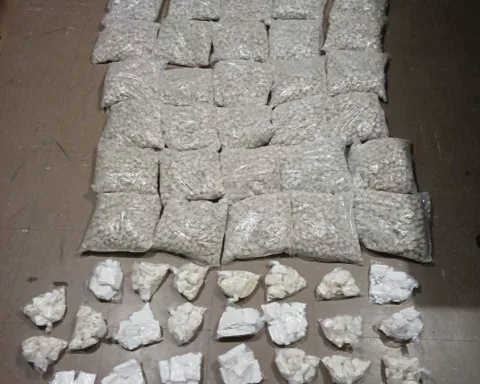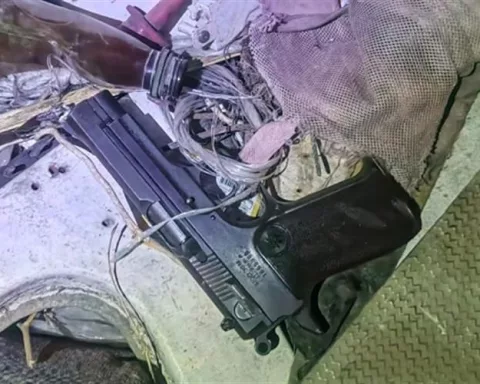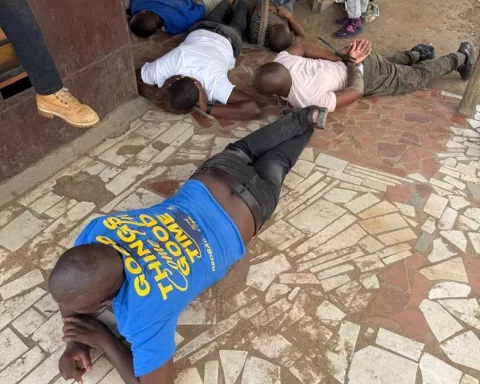Operation Shanela is a successful initiative in Northern Cape, South Africa that has significantly reduced contact and violent crimes. Within a week, the operation made 352 arrests, deployed vehicle checkpoints, conducted stop-and-search operations, and targeted illegal drugs and contraband. The operation’s success is a result of collaboration between law enforcement agencies, and it serves as proof of the efficiency of such collaboration in combating crime.
Operation Shanela is a comprehensive and multi-disciplinary initiative that has significantly reduced the prevalence of contact and violent crimes in Northern Cape, South Africa. Within a span of a week, the operation made an astounding 352 arrests, deployed vehicle checkpoints, conducted stop-and-search operations, and targeted the trade of illegal drugs and contraband. The operation’s success is a powerful testament to the effectiveness of collaboration in combating crime.
A Powerful Stand against Crime
In the expanse of Northern Cape, South Africa, an impressive spectacle of law and order is unfolding. This spectacle is characterized by the relentless efforts of law enforcement agencies, dedicated to eradicating the rampant issue of crime. A notable highlight of this spectacle is the mounting success of Operation Shanela, a comprehensive and multi-disciplinary initiative that has significantly reduced the prevalence of contact and violent crimes in the area.
The operation began its course on February 25, 2024, and was in effect until March 3, 2024. During this period, Operation Shanela systematically and methodically addressed criminal activities in the recognized hotspots of the region. Within a span of a week, the operation made an astounding 352 arrests, demonstrating its unwavering determination to safeguard the local community.
This carefully executed initiative didn’t solely rely on making arrests. It included proactive measures such as setting up vehicle checkpoints, conducting stop-and-search operations, performing foot and vehicle patrols, monitoring compliance inspections, and targeting the trade of illegal drugs and contraband.
Striking Results of the Operation
Over the course of the week, 68 vehicle checkpoints and 20 roadblocks were purposefully deployed across the province, leading to a total of 4,770 vehicles and 8,633 individuals being stopped and examined. These statistics highlight the stringent nature of the operation, aligning with the public’s desire for greater safety and security.
The operation also expanded its reach, undertaking compliance inspections at a variety of establishments like second-hand goods dealers, scrapyards, recyclers, private security firms, firearm dealerships, both formal and informal businesses, farms, and mines. Even educational institutions were included in this broad scope, illustrating the operation’s inclusive approach.
The remarkable victories of the operation serve as proof of its efficiency. Among the 210 individuals detained were suspects linked to a myriad of serious offenses such as murder, attempted murder, rape, robbery, assault, burglary, and drug-related crimes. More than mere statistics, these arrests serve as shattered dreams for those who thought they could function beyond the boundaries of our legal system.
Further Achievements and Stakeholder Collaboration
A particularly significant victory was the capture of a vehicle allegedly transporting stolen livestock from the Upington area. A total of 79 suspected stolen sheep, worth around R240,000, were recovered, and four suspects were taken into custody. This action thwarted a considerable livestock theft operation, reinforcing the resolve of the police force.
Additionally, 142 daily wanted suspects who had escaped court appearances or violated court orders were located and held accountable. This action enforces justice and strengthens public confidence in law enforcement.
Operation Shanela’s focus didn’t stop at apprehending suspects; it also targeted the fruits of their illicit activities. Substantial quantities of alcoholic beverages, illegal drugs, non-ferrous metal items, and cash suspected to be proceeds from illegal activities were seized.
Furthermore, a search of a warehouse in Upington led to the recovery of counterfeit cigarettes valued at over R3 million. This significant confiscation disrupts illegal trading networks and underscores the operation’s commitment to dismantling all types of criminal activities.
A Resounding Success
The success story of Operation Shanela is not just about the police’s determination. Lieutenant General Koliswa Otola, the Provincial Commissioner of the Northern Cape, credits the victory to a larger collaboration, a harmony of collective action involving various stakeholders.
She acknowledges the crucial roles played by the South African National Defence Force, the Provincial and Municipal Traffic Departments, Department of Home Affairs Immigration Services, the National Prosecuting Authority, the Community Police Forums, the Community in Blue Patrollers, and sector neighbourhood groups.
The general public also plays a vital role in this harmonious justice campaign. They are encouraged to participate in the “RATE OUR SERVICE” online survey, which aims to assist the police in enhancing their services.
In conclusion, Operation Shanela is a powerful testament to the effectiveness of collaboration in combating crime. It is a significant victory for justice that reflects the community’s resolve to protect their peace and security. Without a doubt, Operation Shanela is a triumphant march against crime in the Northern Cape.
1. What is Operation Shanela?
Operation Shanela is a comprehensive and multi-disciplinary initiative in Northern Cape, South Africa, aimed at reducing the prevalence of contact and violent crimes in the area.
2. What measures were taken during the operation?
During the operation, vehicle checkpoints were deployed, stop-and-search operations were conducted, foot and vehicle patrols were performed, compliance inspections were monitored, and the trade of illegal drugs and contraband was targeted.
3. How many arrests were made during the operation?
The operation resulted in an astounding 352 arrests within a week.
4. What were some of the achievements of Operation Shanela?
In addition to making arrests, the operation captured a vehicle allegedly transporting stolen livestock, seized substantial quantities of alcoholic beverages, illegal drugs, non-ferrous metal items, and cash suspected to be proceeds from illegal activities, and recovered counterfeit cigarettes valued at over R3 million.
5. Who were the stakeholders involved in Operation Shanela?
The success of Operation Shanela was credited to a larger collaboration involving various stakeholders, including the South African National Defence Force, the Provincial and Municipal Traffic Departments, Department of Home Affairs Immigration Services, the National Prosecuting Authority, the Community Police Forums, and sector neighborhood groups.
6. How can the general public participate in the justice campaign of Operation Shanela?
The general public is encouraged to participate in the “RATE OUR SERVICE” online survey, which aims to assist the police in enhancing their services.












